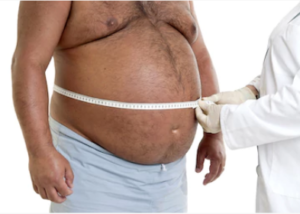
Anorexia nervosa is the name of a psychiatric disorder, a mental illness, but “obesity” can be the result of certain of psychiatric disorders.
I was inspired to write this article after reading a post on a woman’s Instagram page.
The woman appears to be 250 or so pounds, which would be considered — by medical standards — to be obese.
She is part of the body positive movement, and every so often a compelling question shows up in response to her images.
Someone asked why a push for body positivity towards a woman with anorexia would be criticized. He pointed out that some anorexic women like being anorexic.
This is true, too, as evidenced by the “pro-ana” websites on which women and teens, who’ve been diagnosed with anorexia nervosa, share their tips on how to stay very underweight and post how they enjoy the look.
Anyways, someone responded to the man, “Anorexia is a mental illness, and being overweight is not.”
Anorexia nervosa is a psychiatric disorder. Being overweight is a physical symptom that can result from a physical condition such as hypoglycemia or a side effect of certain medications.
A physical symptom, then, is not a mental illness.
However, a mental illness, such as severe depression, can lead to overweight and obesity – the depressed person “medicates” with large amounts of food.
Food is comforting to them. Food is “always there” for them. It’s their “drug of choice,” so the saying goes.
They don’t necessarily binge uncontrollably, but they are compulsive overeaters and may be only 30 or 40 pounds overweight.
Binge Eating Disorder
Like anorexia nervosa and bulimia nervosa (induced vomiting after food binges), “binge eating disorder” is classified as an eating disorder by the American Psychiatric Association.
The classification is in the Diagnostic and Statistical Manual of Mental Disorders (DSM-IV).
So according to the DSM-IV, binge eating disorder (which often leads to obesity) is just as much a mental illness as is anorexia nervosa.
In BED, a person will eat very large amounts of food at a single sitting – sometimes as much as a bulimic – except that they don’t purge with induced vomiting.
Most obese people do not have binge eating disorder. HOWEVER, about two-thirds of people with binge eating disorder are obese.

Shutterstock/Nomad_Soul
A person can have BED and be only 10 pounds overweight, being able to maintain this marginal level of overweight due to a combination of fast metabolism and intense workouts.
BED also comes in degrees. Certainly, the amount of food that the subjects on TLC’s “My 600 Pound Life” eat is enormously more than what a 160 pound, very active woman with BED eats.
Just because an illness is considered a psychiatric condition (a.k.a. mental illness) doesn’t mean that the person who has it is “crazy.”
In fact, the DSM-IV even includes nail biting, lip biting and hair pulling as psychiatric “disorders.” Why wouldn’t binge eating also be one of them?
But do all obese people have binge eating disorder?
What if they’re obese due to a combination of slow metabolism (from never exercising), age over 30 (when muscle loss begins in sedentary people), and poor food choices and supersized (though not at the bingeing level) portions?
It seems too odd to label such an individual as being mentally ill. A person could have the same eating habits (large portions of junk food) but have a medically acceptable body mass index due to 40 mile mountain bike rides and CrossFit training.
With that all said, what REALLY is the answer to “Is obesity a mental illness”?
“The true answer is yes and no,” begins Susan L. Besser, MD, with Mercy Medical Center, Baltimore, and Diplomate American Board of Obesity Medicine and board certified by the American Board of Family Medicine.
“Obesity is not only a mental illness, nor is it a physical one,” continues Dr. Besser.
“There are multiple factors: psychological, physiologic, hormonal, genetic, environmental, that factor into obesity.
“Eating disorders can definitely lead to obesity — so yes, obesity can be a mental illness, but it is really much more complicated than that.”









































